Green Aquaculture is an Irreversible Trend
Deputy Minister Phung Duc Tien stated, We hope that in the coming time, we will stand shoulder to shoulder, build the most unified block to continue affirming the role and position of Vietnam's aquaculture in the country's economy and international integration. Photo: Tung Dinh.
Promoting growth in cultivation and exploitation in the right direction
Mr. Nhu Van Can, Ministry of Agriculture and Rural Development (MARD), revealed that in 2023, the aquaculture sector continued to receive strong attention and effective guidance from the government, the Prime Minister, and the leadership of MARD. Strategic development orientations for the fisheries sector were timely and fully issued by the Prime Minister.
However, the fisheries sector still faces various challenges, such as the prolonged conflict between Russia and Ukraine, the Israel-Hamas conflict, and instability in the Middle East, leading to a slow global economic recovery. The prices of some raw materials and inputs for aquaculture development remain high, and high logistics costs are putting pressure on production activities, especially as consumption demand slows down and production scales contract. The European Union continues to issue a yellow card warning against Vietnam's fisheries exploitation.
Nevertheless, according to Mr. Can, despite the challenges, the entire sector has achieved noteworthy results. The total fisheries output in 2023 reached nearly 9.3 million tons, a 2% increase compared to 2022. This includes an exploitation output of over 3.86 million tons, equivalent to 2022, and a cultivation output of over 5.4 million tons, a 3.5% increase from 2022.
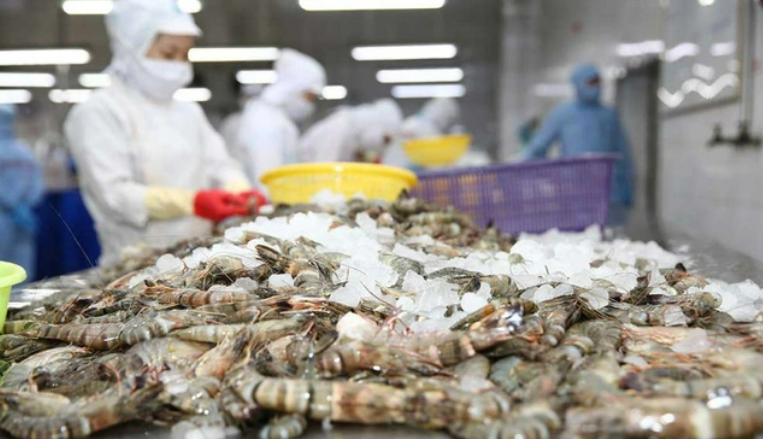
The export turnover is estimated at around USD 9.2 billion, with shrimp exports reaching USD 3.45 billion, tra fish about USD 1.9 billion, processed products approximately USD 0.8 billion, and tuna around USD 0.9 billion.
Mr. Nguyen Van Trung, Head of the Management Department of Fishing Vessels and Post-harvest Fisheries Services, Fisheries Department, believes that despite the lower-than-expected fisheries exports in 2023, considering the overall difficulties facing the entire sector, this is still a positive result contributing to the overall growth target of the agricultural sector.
Graph: Hong Tham
According to Mr. Vu Duyen Hai, Head of Fisheries Exploitation Department, Fisheries Department, in 2023, the exploitation fleet and production scale decreased. However, the fisheries exploitation sector is moving in the right direction according to Vietnam's Fisheries Development Strategy until 2030, with a vision to 2045, and is adapting to global norms.
We have maintained the position of the fisheries sector globally. According to the assessment of the Food and Agriculture Organization (FAO) of the United Nations, in 2023, the scale of Vietnam's fisheries exploitation still ranks 7th globally and 4th in Asia, Mr. Hai informed.
According to the Fisheries Department, in 2023, the number of fishing vessels in the country decreased to 83,430, a reduction of 6,292 vessels compared to 2022. This includes 37,770 vessels in the 6-12m range (a decrease of 5,230 vessels), 16,000 vessels in the 12-15m range (a decrease of 480 vessels), 26,500 vessels in the 15-24m range (a decrease of 470 vessels), and 2,510 vessels over 24m (a decrease of 112 vessels).
Proactively addressing new-generation barriers
Mr. Le Ba Anh, Deputy Head of the Quality, Processing, and Market Development Department, stated that the fisheries sector in 2023 performed as well as possible under current conditions. However, the issue of antibiotic residues in aquaculture still needs attention due to the lack of positive improvement.
The number of warned fisheries batches in 2023 was only 63, a significant decrease from 136 batches in 2022. However, the warnings mostly related to antibiotics, with 31 out of 63 batches violating these standards. The EU and Japan were the two markets with the strongest warnings.
Despite the 'One Health' program connecting humans and animals and the reasonable use of antibiotics to prevent antibiotic resistance, this issue is still prevalent in various localities. There needs to be stricter penalties for this issue in 2024, Mr. Ba Anh said.
The fisheries sector should pay more attention to new-generation barriers
In 2024 and beyond, the fisheries sector should pay more attention to new-generation barriers according to Mr. Ba Anh. These include reducing emissions, fair trade, animal welfare, environmental protection, etc. Therefore, the sector needs to prepare the mindset from now on, build a compatible legal system, and internalize it to manage these issues.
Ms. Cao Le Quyen, Deputy Director of the Institute of Economics and Planning for Fisheries under the Ministry of Agriculture and Rural Development (MARD), acknowledges that the current global trend is placing significant emphasis on green production and the transition to environmentally friendly practices. Accordingly, there is a need for increased attention to reducing greenhouse gas emissions in the fisheries sector. It is essential to guide production operations and encourage green production in line with market requirements.
From a business perspective, Mr. Tran Van Linh, Chairman of the Board of Directors of Thuan Phuoc Fisheries Company – an exporter of processed shrimp, reflected that the decline in shrimp exports in 2023 was due to a decrease in export prices. Additionally, low demand and increased supply from other shrimp-producing countries like Ecuador and India contributed to the decline. The high shipping costs were also a factor.

It is challenging to predict the situation in 2024, but Vietnam's shrimp exports will still face many challenges. The economic situation of some importing countries will decline due to the impact of the military conflicts in Russia-Ukraine, the Israel-Hamas conflict, making people's lives more difficult, and purchasing power cannot improve, Mr. Linh predicted.
Self-renewal is necessary
To achieve sustainable growth in 2024 and the upcoming period, Mr. Trung proposed that digitalization of data and the integration of technology and software are essential in fisheries exploitation. This is a crucial foundation for management and operation. Currently, there is a lack of uniform and comprehensive penalties for violations, and many violations are overlooked. Strong measures are needed to enhance the handling of violations.
Mr. Duong Long Tri, Deputy Secretary-General of the Vietnam Fisheries Association, shared that the results of the fisheries sector in 2023 are commendable, with increased fisheries output. However, continuous growth in output alone is challenging. Attention should be given to solutions that enhance the value-added of products to increase export turnover.
According to Ms. Dang Thi Lua, Director of the Research Institute of Aquaculture I, the fisheries sector needs a harmonious direction and plan, focusing on key target groups while also paying attention to the development of regional target groups. Only then can the advantages of the fisheries sector be fully utilized, and a diverse range of fisheries products can be developed.
The extraction industry is heading in the right direction according to the Development Strategy for Vietnam's Fisheries until 2030, with a vision towards 2045, aligning well with global standards. Photo: Hong Tham.
Mr. Tran Dinh Luan, Director-General of the Fisheries Department, stated that in 2024, measures would be strengthened to control and improve the quality of input materials (breed, medicine, feed, etc.). There will be a focus on developing local and specialty fisheries products, identifying sources of discharge in the fisheries production chain to plan for deployment and technology changes to reduce emissions.
With extensive and super-intensive aquaculture as it is now, there is considerable discharge. In the future, the import market will have green, yellow, and red labels, and animal welfare labels for fisheries products. Besides food safety issues, these will be the challenges that Vietnam's fisheries sector will have to face. There is still a lot of work ahead for us to be proactive in fisheries exports, Mr. Luan emphasized.
Deputy Minister Phung Duc Tien assessed that 2023 was a challenging year for the entire agricultural sector, especially fisheries. However, it must be affirmed that the fisheries sector has made tremendous efforts and innovations, adapting to life. Never before has the fisheries sector had such a complete and stringent system of legal documents and strategies as it does now. The fisheries sector has been determined and innovative, but it still needs to renew itself.
Deputy Minister Phung Duc Tien instructed that in aquaculture, the breeding stock needs to be reviewed. New shrimp breeds are managed by only 50%, and catfish breeds do not meet the demand. There are still many fake breeds of unclear origin, leading to reduced productivity, prices, and competitiveness. Additionally, more attention should be given to feed and nutrition. A review is needed, and businesses are encouraged to participate and collaborate with the supply chain following the share risk, harmonious benefits philosophy.
Regarding the fight against illegal, unreported, and unregulated (IUU) fishing, the focus will be on solving three basic issues: managing and monitoring the fishing fleet, source tracking, and penalties (if any).
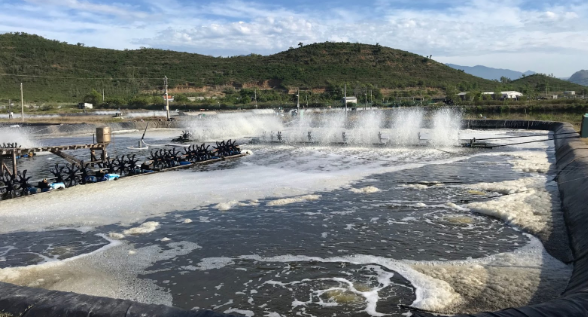
The direction towards green aquaculture is a mandatory requirement and cannot be reversed against the world trend. At the very least, we must have this concept in mind now. If we delay, it will be challenging to integrate deeply. Absolutely, we should not follow trends, emphasized Deputy Minister Phung Duc Tien.
Deputy Minister Phung Duc Tien stated, The fisheries sector accounts for 28.7% of the total value of the entire agricultural sector. Quality improvement is necessary as it determines the 'health, height,' and success or failure. This is also a prerequisite to propel Vietnamese agricultural products, in general, and fisheries products, in particular, further. The transformation of the fisheries sector in the past has been clearly seen. We hope that in the coming time, we will stand shoulder to shoulder, build the most unified block to continue affirming the role and position of Vietnam's fisheries in the country's economy and international integration. All rivers must flow to be successful.
Cre: nongnghiep.vn
Ngày đăng : 22/06/2024
1450 View
Other Articles
Indian shrimp pivot to the EU, increasing competitive pressure on Vietnam
Indoor shrimp farming in Europe: Investment challenges and the race to find a viable model
Shrimp production surged in the first month of the year, with exports benefiting from strong demand during the Lunar New Year holiday
Quang Ninh Accelerates Digital Transformation in Shrimp Farming, Rising to Lead Northern Vietnam
Lucky money is not just about cash — it’s Aqua Mina’s wish for a worry-free farming season for our valued customers
Việt Nam's top 10 seafood exporters command nearly one-fifth of industry revenue
Ca Mau Maintains Its Shrimp Brand in International Competition
VIETSHRIMP ASIA 2026 & AQUACULTURE VIETNAM 2026 – A TURNING POINT FOR THE MODERN SHRIMP FARMING INDUSTRY
Ecuador's shrimp industry educational program SustainED kicked off its 2026
An Giang will start raising brackish water shrimp as early as the beginning of 2026
Aqua Mina conducts the on-site installation of two aquaculture air blowers | Ceramic Ball Bearing – 15 kW – 25 kPa for a customer in Quang Ninh
Towards Building Brand Value for the Shrimp Industry









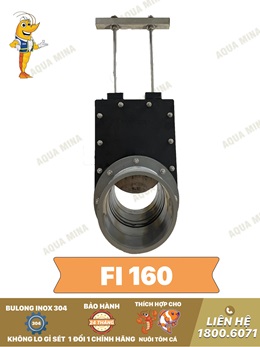


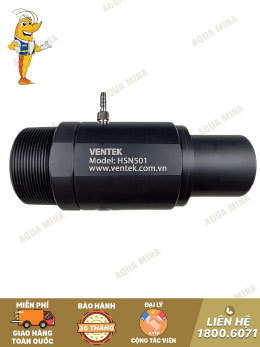
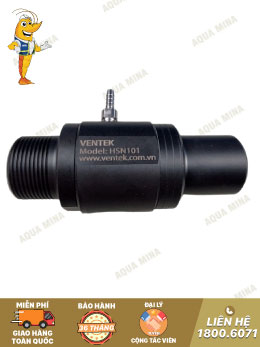

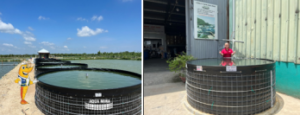
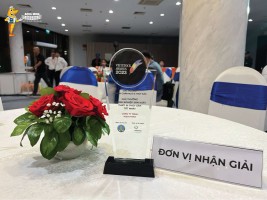
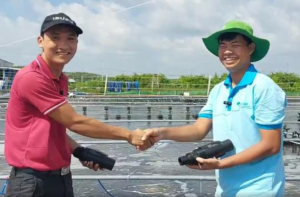
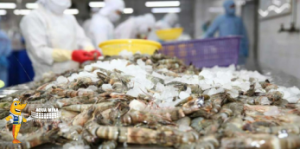
.jpg)